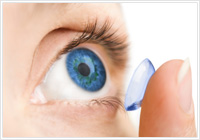Just just like the rest of our bodies, our eyes have distinctive requires as we age. That is why it’s essential to know which vision alterations are a normal aspect of aging, and when something additional serious could will need the consideration of an eye medical professional. Find out what to expect of the eyes in every single era, uncover proactive actions to preserve your healthier eye sight, and understand which corrective measures can help you see clearly and function very best, no matter what your age!
20s and 30s 
WHAT TO Anticipate
Normally speaking, adults in their 20s and 30s have healthier eyes and can properly treat vision issues with corrective eyeglasses, speak to lenses, or refractive surgery (when the vision is stable). Keep in mind, it’s never ever too early to begin preserving your eye well being! For the duration of this stage of life, prevention is essential.
TAKE ACTION
• Be sure to defend your healthier eyes from harmful each day components, like cigarette smoke and UV rays, which can raise your threat of age-related macular degeneration down the road. • Be conscious of occupational hazards, like lengthy hours in front of laptop monitors, which can lead to eyestrain and laptop or computer vision syndrome • Schedule an annual eye exam to maintain your prescriptions up-to-date and avoid any long-term damage. 40s
WHAT TO Expect
Even though preventative measures are important to maintaining healthful eyes, vision adjustments are a natural aspect from the aging approach. Presbyopia, a decline within your potential to concentrate because of the hardening with the lenses within your eyes, might develop into much more noticeable inside your 40s, creating it a lot more tough to see when reading or doing close function.
TAKE ACTION
?Concourse Optometry
• In its earliest stages, merely adjusting the distance amongst your eyes and your reading material could aid compensate for the effects of presbyopia. • When adjusting your viewing range is no longer an option, corrective lenses, for instance reading glasses or multifocal speak to lenses, will be your most effective possibilities to help you see additional clearly. 50s
WHAT TO Anticipate
As we age, the threat of acquiring many age-related eye diseases-such as glaucoma, cataracts, and macular degeneration - will increase.
TAKE ACTION
• Monitor your vision and see your eye medical professional if you notice any important vision changes. • Have your eyes checked immediately after other big overall health changes, for example a hypertension or diabetes diagnosis. • While there's no remedy for macular degeneration, healthier habits like taking multivitamins and consuming foods wealthy in lutein and antioxidants can help slow the procedure down. 60s and beyond 
WHAT TO Anticipate
Even though cataracts are technically classified as an age-related eye illness, the condition is so frequent amongst older people, that they’re thought of a standard aspect with the aging method. This impairment on the lens is triggered by tiny clumps of protein molecules, which block light and dim your vision.
TAKE ACTION
• If cataracts begin to impair your daily activities, cataract surgery, in which your organic lens is replaced with an artificial lens, is often a safe and successful technique to restore your vision. • Visit your optometrist no less than when a year to get a comprehensive eye exam and to screen for popular age-related eye illnesses. Irrespective of what your age, normally monitor your vision modifications, make wholesome way of life and dietary choices, and see your eye doctor for yearly eye exams to keep your eyes wholesome for years to come!
Get to understand far more about ?Irvine Optometry?